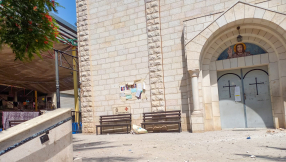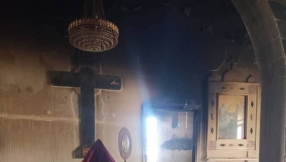Polish Church to Probe Bishops on Communist Past
The Church fell into crisis last week when Stanislaw Wielgus resigned as Archbishop of Warsaw after confessing he collaborated with the communist secret police.
At an emergency meeting to resolve the crisis last Friday, the 45-member bishops' council agreed that the special commission would probe all 27,000 of the Church's priests and clergy, reports AFP.
"We will ask a special commission to check the past of all our bishops," the head of the council of bishops, Jozef Michalik, told reporters after the emergency meeting.
The bishops who took part in the closed-door meeting all agreed to be investigated, and the episcopate will formally widen the probe to include all of Poland's 133 bishops when it holds a plenary meeting in March, Bishop Piotr Libera of the bishops' council said.
Libera said that the final decision as to whether a bishop could retain his office would be taken by the Vatican.
"After the historic commission and experts have submitted their reports, the information will be sent to the Holy See. There is no court in Poland that is qualified to pass judgment on a bishop. A bishop can only be judged by the Holy Father or by a Vatican tribunal."
Investigations would also be set up "at diocese level to check priests and other clergy members", Libera said, but the effectiveness of such a huge task was doubtful.
The so-called historic commissions that conduct probes into a cleric's past can only be set up at the behest and with the agreement of the person who is to be investigated.
Some dioceses have already set up historic commissions to look into the still painful issue of whether members of the Roman Catholic clergy collaborated with the hated communists, but others have refused to do so, AFP reports.
In a country where some 90 per cent of the population identify themselves as Catholic, the estimate from historians that as many as one in 10 clergy members collaborated with the hated Sluzba Bezpieczenstwa communist police has already blemished the image of the Church.
Wielgus resigned last Sunday, just hours before he was due to be inducted into office in a high-profile service in Warsaw Cathedral.
His resignation has thrown a spotlight on the Church's past that many now lead to more confessions and resignations of a similar nature.
As the bishops were meeting privately last Friday, a publishing house in Krakow announced that it will publish a book next month by Roman Catholic priest Tadeusz Isakowicz-Zaleski, in which dozens of clerics are expected to be named and shamed as communist collaborators.
The 50-year-old Zaleski penned his book after having access in 2005 to the file kept on him by the communist secret police, when he was chaplain in the 1980s for a branch of the Solidarity trade union, AFP reports.
"I discovered that, among those who informed on me, there were priests. It came as a shock," recalled the bearded cleric, who was badly roughed up twice by the reviled SB for his anti-communist activities.
Zaleski took his grim discovery to his superiors, to warn them that the information in the archives "was a true time-bomb" for the Church. "But the Church didn't do much," he said.
Cardinal Jozef Glemp, whom Wielgus was to have replaced as Archbishop of Warsaw, has said an organised "smear campaign" was being waged against the Church.
But on Friday, Michalski insisted the Church "is not afraid of the truth, no matter how difficult or shameful it might be."
"The quest for the truth is sometimes painful," he added.













